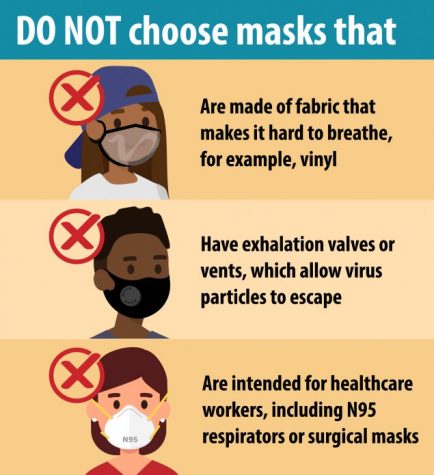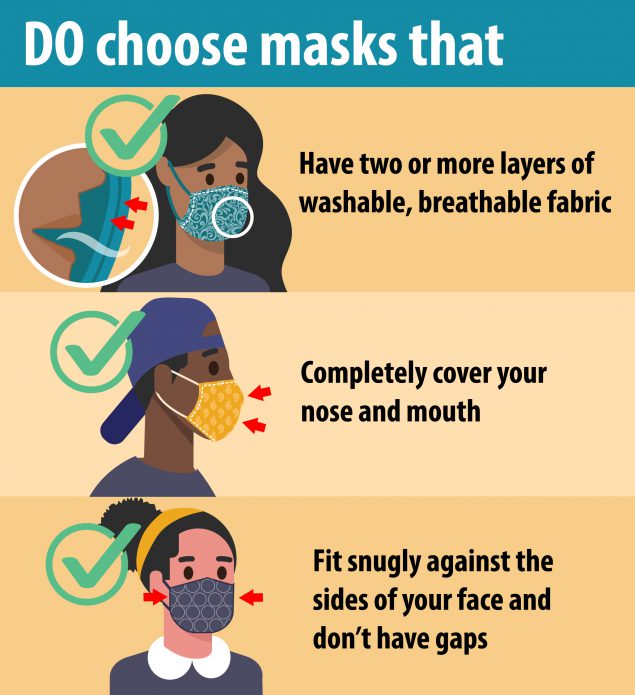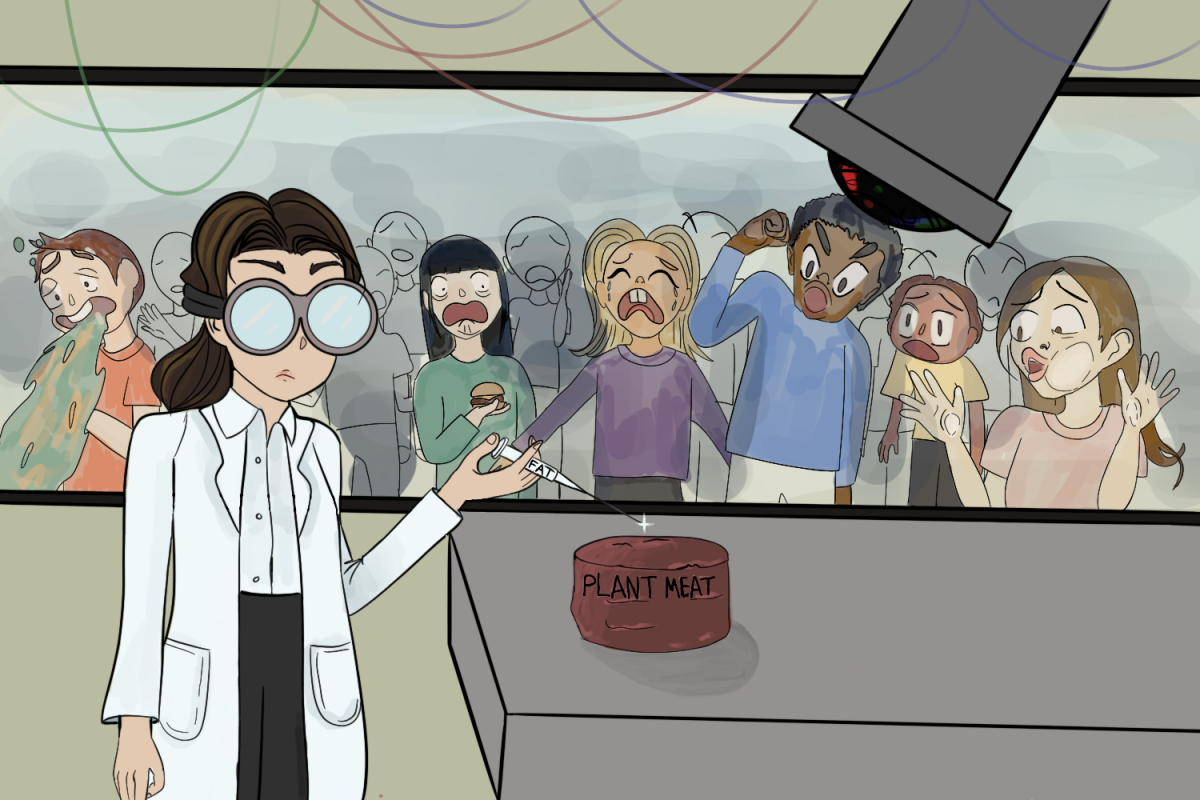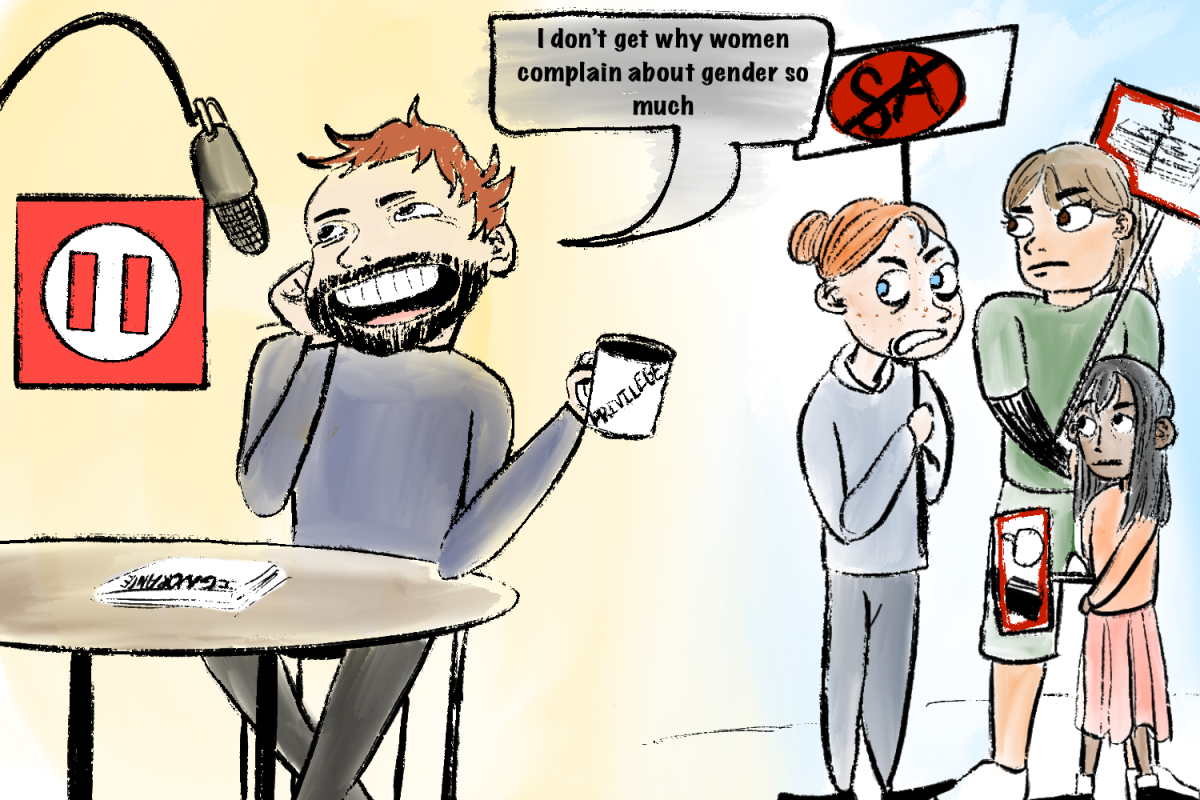Belief: Cloth masks are ineffective at protecting from COVID-19.
Reality: Some factors make cloth masks less effective at preventing the spread of COVID-19, but they are still helpful.
A study published in the Journal of the American Medical Association proved that cloth masks are effective at protecting against COVID-19. It focused on two hairstylists who were infected and showed symptoms of COVID-19 while interacting with their clients, all of whom wore cloth face coverings. The study found that none of the 139 clients of the stylists become ill.
According to the Centers for Disease Control and Prevention (CDC), multilayered cloth masks that are designed to fit around the face, have water-resistant fabric, a higher number of threads, and a finer weave, will provide adequate protection.
However, if masks have exhalation valves, they are less protective. These valves allow virus particles to escape, so they do not protect others from contracting COVID-19 if the wearer is infected.
For masks to be most effective, they must be worn correctly: covers the nose and mouth, is secured under the chin, and fits snugly against the sides of the face.

Yet, even well-fitting cloth masks do not form a tight seal around the wearer’s face, so they are not suited for a medical setting. They are useful in reducing the spread of COVID-19 in community settings, though.
The CDC recommends that the public leave surgical and N95 masks for health care providers because they are in short supply. On the other hand, cloth masks are easy to find or make and can be washed and reused, unlike medical-grade face coverings meant for one use.
“We are not defenseless against COVID-19,” said CDC director Dr. Robert Redfield. “Cloth face coverings are one of the most powerful weapons we have to slow and stop the spread of the virus – particularly when used universally within a community setting.”













